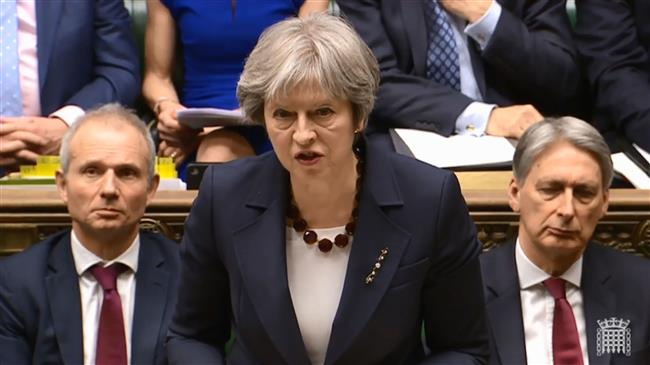Five Reasons to Question the British Allegations Against Russia

She is clearly no mother Teresa! The British Prime Minister Theresa May has injected a new lease of life in the dormant Tory politics by ramping up Russophobia and lending her soul to a Tony Blair-like stampede against the perceived enemy, in this case Vladimir Putin, who had the audacity to make unveiled nuclear threat against the West in his recent state of union address. May, with much direct assistance from the US, has done this by levelling unfounded accusations of a Moscow complicity in a poison gas attack on a former spy and his daughter, asking the world instead to simply trust without the need to verify.
But, as the UK-Russian relations spirals toward a major crisis, with the expulsion of 23 Russian diplomats by London bound to be reciprocated by Moscow, there are ample reasons to question the veracity of the British allegations and, indeed, suspect a cold-war-style foul play -- to smear the Russian President Vladimir Putin on the eve of the presidential elections in Russia.
First, May has outright lied by claiming that the nerve gas known as Novichok is exclusively owned by Russia and no other state possesses this deadly agent. But, according to credible reports, the British government itself has the capability to produce this and other similar chemical weapons and has in the past tested the Russian-produced gas at its labs. In addition to England, both Israel and US have this capability and, according to Irish Times, it may have also been smuggled out of Russia by criminal elements after the demise of Soviet Union; therefore, it is quite erroneous on May's part to narrow the net of suspect to Russia immediately, when it may be self-inflicted for clear (geo) political reasons.
Second, the timing of this incident, coinciding with the Russian elections, is indeed curious, raising the rightful suspicion that it is cooked up in the West in order to discredit Putin and undermine his popularity. Only by assuming the worst caricature of Putin one can accept as plausible that right prior to the elections he would engage in such a risky and counterproductive action on foreign soil. Putin is a shrewd statesman targeted for demonization by the West and its entire propaganda machinery including the mainstream media that has sheepishly parroted the official line.
Third, the victim, Sergei Skripal, did not pose any threat to Moscow to warrant his termination. He was in UK as part of a spy swap and lived under his own name and, if anything, his reported involvement with a former British spy who concocted the infamous Trump dossier for the Clinton campaign, points the finger at alternative culprits. The lack of motivation on Moscow's part to go after this person and his daughter who was visiting from Russia simply undermines the British conspiracy theory.
Fourth, the British government's rejection of the Russian request to see the evidence, as called for by the protocols of the Chemical Weapons Convention, is unjustifiable except from the prism of a dirty British tactic that is, unfortunately, quite familiar in the annals of British foreign diplomacy, most recently the 'WMD hoax' of Blair's government that was dished out loyally to the American warmongers ahead of
their unlawful invasion of Iraq.
Fifth, the exaggerated, rapid fire response of the British government, condemning Russian government without presenting any concrete evidence whatsoever and then eyeing the Russian assets in England, reflects a sinister effort that would, they hope, entail some plunder of the Russian wealth abroad with the flimsiest excuses. Of course, there is no justification for these Russophobic steps that have a geopolitical dimension, to cut the Russian bear to size and disallow it from making greater geopolitical gains.
Although from a historical perspective none of this should come as surprised to anyone well versed in British (imperial) history, what is both surprising and rather demoralizing is the servile role of UN's Secretary General, Antonio Guterres, who as of late has turned into a sounding board for the western governments, thus undercutting his own credibility on the world stage.

